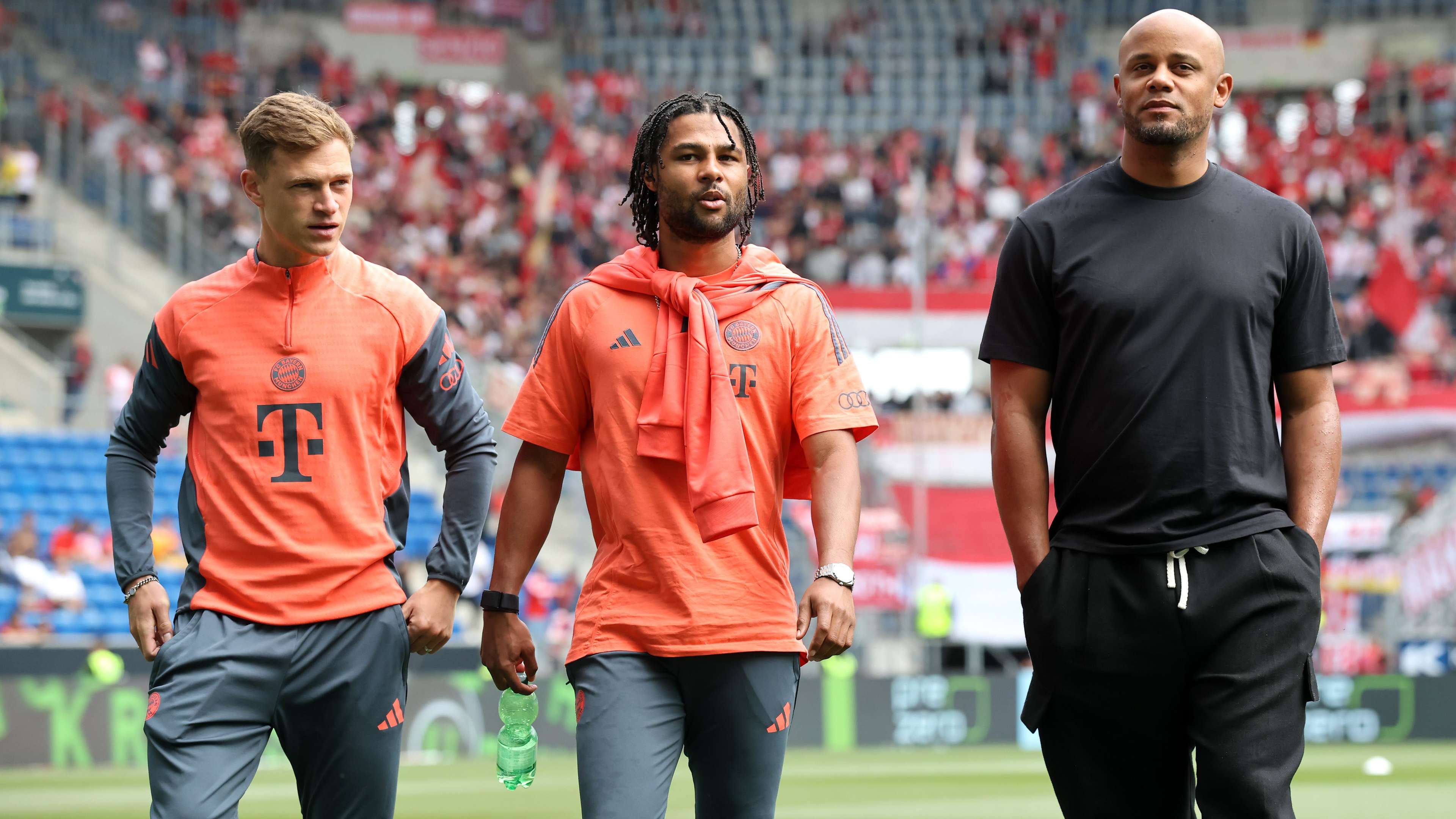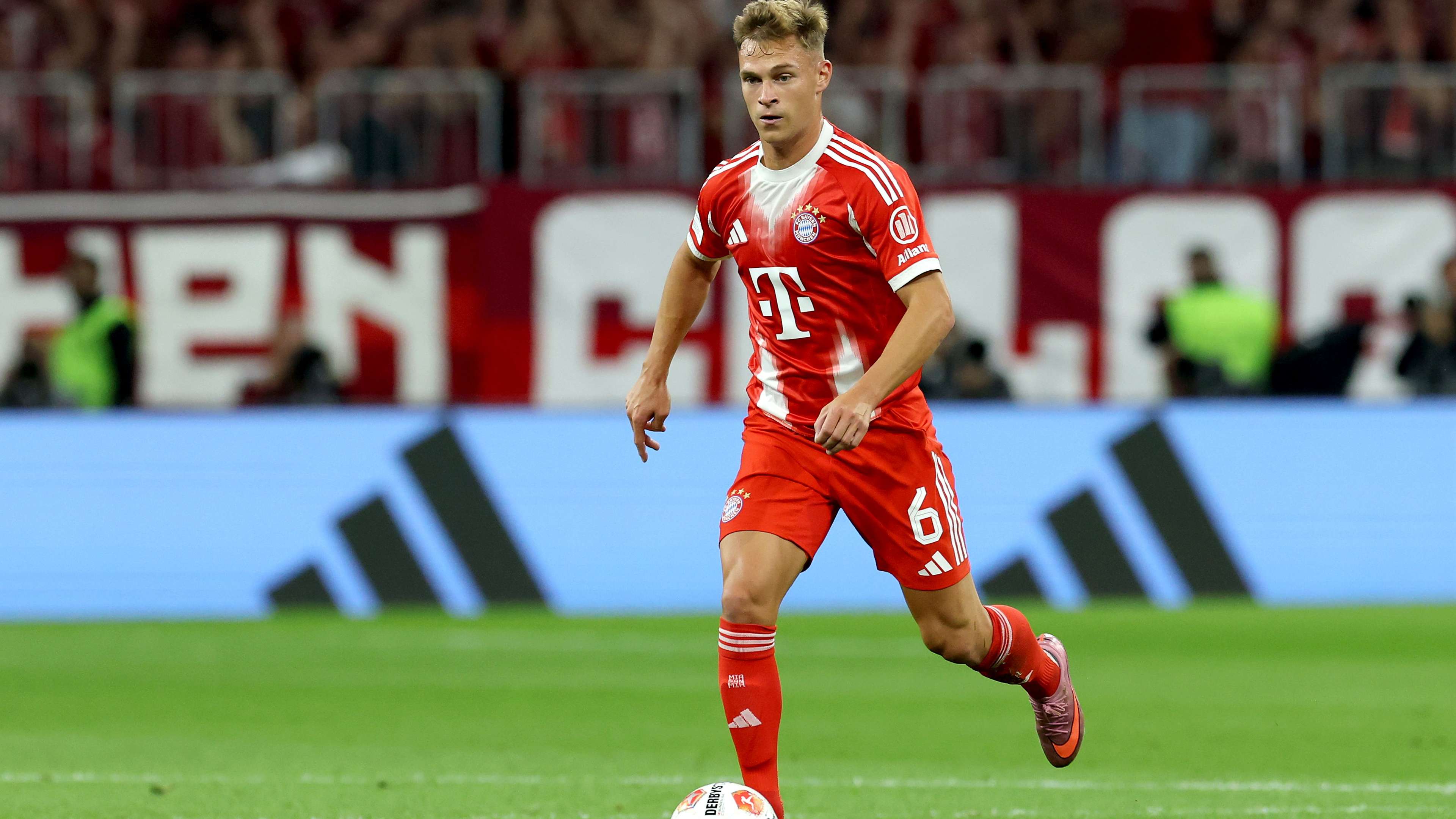
Joshua Kimmich Calls Out Premier League’s Spending Power as Bayern Star Insists Players Not to Blame
When Joshua Kimmich speaks, people usually listen. Whether he’s dictating the tempo in Bayern Munich’s midfield or offering a rare moment of blunt honesty off the pitch, the 29-year-old has long been regarded as one of the most thoughtful voices in modern football. This week, ahead of Germany’s World Cup qualifiers against Slovakia, Kimmich once again stepped into that role—not with a tactical breakdown or rallying cry, but with a sobering observation on the state of the transfer market.
For Kimmich, the sums being paid for players in 2025 have reached a point where even those at the heart of the game struggle to comprehend them. In his view, neither the players nor the fans are responsible for the “madness.” Instead, the driving force comes from elsewhere—most notably the financial might of the Premier League.
Joshua Kimmich on Premier League’s Transfer Fees
The Bayern star did not mince his words. “It’s hard to grasp, both for us players and for the average fan, how much money is paid for a player,” Kimmich admitted. “We can’t control the sums either, and to be honest, we can’t really influence them either. Especially when such transfer sums are being paid, at the end of the day, you have to say that, of course, it’s the market that determines these sums.”
His frustration is hardly surprising. Over the summer, Bayern watched on as two of their top targets—Florian Wirtz and Nick Woltemade—slipped away to Premier League sides for staggering amounts. Liverpool shelled out a jaw-dropping £116 million ($156m) for Wirtz, Newcastle splashed £69m ($93m) to sign Woltemade from Werder Bremen, while Alexander Isak’s move to Anfield came in at an eye-watering £125m ($169m). For a league that prides itself on tradition, sustainability, and competitive balance, German football simply can’t compete at those figures.
Kimmich pointed straight at the root cause. “If you look at the Premier League, there are obviously financial resources available, both through ownership and TV money, so they can apparently easily pull these sums out of their sleeves.”
Bayern Munich’s Frustration in the Market
For Bayern Munich, a club accustomed to leading the way in Germany and competing at the very top in Europe, missing out on players because of price tags is a new, and bitter, reality. Traditionally, the Bavarian giants have had the financial clout to raid domestic rivals or lure talent from abroad. But the Premier League’s dominance has reshaped the landscape.
Uli Hoeness, Bayern’s honorary president, recently slammed the transfer market’s direction, describing the fees as “irresponsible” and “damaging to football.” Kimmich’s comments echo that sentiment but add a layer of empathy—for the players, for the fans, and even for the clubs trying to keep up.
“It’s not like a player says, ‘I want to cost 100 million,’” Kimmich continued. “The clubs negotiate, the market dictates, and suddenly those numbers are just there. But it doesn’t mean we understand them.”
The Premier League’s Structural Advantage

TSG 1899 Hoffenheim v FC Bayern München – Bundesliga Kimmich
The core issue is structural. The Premier League enjoys unmatched financial resources, thanks largely to massive global television deals and billionaire owners who treat clubs as both prestige projects and investments. For Bundesliga sides—whose ownership model (the famed 50+1 rule) limits outside investment—the playing field is not just uneven, it’s completely tilted.
According to a recent FIFA report, men’s football clubs invested a record $9.76 billion in international transfers over the last year. English clubs accounted for the lion’s share of that spending. Bundesliga sides, meanwhile, have seen their influence in the market shrink. Where once Bayern Munich could outbid their rivals for Europe’s brightest talents, today they are forced to watch them head to England.
This summer proved it. Bayern’s pursuit of Wirtz, long thought to be a natural successor to their midfield greats, ended when Liverpool offered a package the Germans couldn’t dream of matching. Similarly, Newcastle’s willingness to pay £69m for Woltemade—a promising but still relatively unproven striker—left Bayern completely out of the race.
Joshua Kimmich Speaks for the Players

FC Bayern München v RB Leipzig – Bundesliga
Kimmich’s remarks resonate because they come from someone who has lived both sides of football: the glory of winning titles and the reality of market forces beyond his control. His point is simple—players are not the architects of these ballooning fees. They sign contracts, yes, but the negotiations and market inflation happen in boardrooms, not locker rooms.
“It’s the market,” he repeated. “The players are not responsible for what is paid.”
For fans, who often direct frustration at players for “not being worth the money,” Kimmich’s words offer perspective. He isn’t defending the sums themselves—he openly admits they are “hard to grasp.” What he is defending is the players’ role within that system.
What This Means for German Football
The bigger question, however, is what this means for the Bundesliga and for Bayern Munich in particular. The German champions still dominate domestically—they currently sit top of the Bundesliga heading into their clash with Hamburger SV—but Europe is another matter entirely. Competing with Premier League clubs for top players is becoming impossible.
That leaves Bayern with two options: either double down on their famed ability to develop talent, or find creative ways to compete in a financial landscape that increasingly feels unfair. For the league as a whole, the challenge is even greater. How does the Bundesliga remain competitive on a European stage when England’s clubs can outspend them ten times over?
For now, Bayern will focus on matters on the pitch. Kimmich and his teammates continue their push for another Bundesliga crown, while also preparing for the Champions League group stages. But his comments serve as a reminder that beneath the winning mentality and on-field focus, frustration simmers at the Allianz Arena.
Conclusion: A Voice of Reason Amid the Madness
Joshua Kimmich’s candour cuts through the noise of modern football. In a world where transfer headlines are dominated by record-breaking sums, his message is refreshing: don’t blame the players. Don’t even blame the fans who struggle to make sense of it all. The market has spiraled into its own ecosystem, one fueled by television rights, billionaire owners, and structural advantages that leave certain leagues untouchable.
The Premier League may continue to “pull massive transfer fees out of their sleeves,” but in doing so, it risks widening the gap between itself and the rest of Europe beyond repair. For Bayern Munich, and for Kimmich himself, the focus remains on the football—but the frustration with the market lingers in the background.






























































































































































There are no comments yet. Be the first to comment!